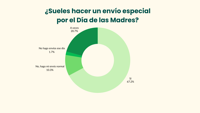
For many Latinos, many of whom are undocumented, it has become increasingly difficult to become homeowners. Photo by Tierra Mallorca
Last week, California Governor Gavin Newsom vetoed Assembly Bill 1840, a bill that would have expanded the California Dream for All Shared Appreciation program and allowed undocumented immigrants with ataxpayer ID number (ITIN) or Social Security number to obtain home loans for the first time in California.
The bill, which Assemblymember Joaquin Arambulo (D-Fresno) authored, would have prohibited the disqualification of loan applicants for reasons based solely on immigration.
Although the California Assembly and the Senate approved the bill in August, Newsom decided to kill the bill when it reached his desk last Friday, citing insufficient funds as the main reason for his decision.
"This bill seeks to prohibit the disqualification of applicants from one of California Housing Finance Agency’s home purchase assistance programs based solely on their immigration status,” Newsom wrote in a letter to the state assembly. “Given the finite funding available for CalHFA programs, expanding program eligibility must be carefully considered within the broader context of the annual state budget to ensure we manage our resources effectively. For this reason, I am unable to sign this bill.”
For many Latinos, including the undocumented, it has become increasingly difficult to become homeowners. A 2023 report by the Harvard Joint Center for Housing Studies, titled“Immigrants’ Access to Homeownership in the United States: A Review of Barriers, Discrimination, and Opportunities,” looked at the key barriers to and strengths of immigrants in becoming homeowners.
Although there are no exact numbers of how many immigrants are homeowners in the United States, the report does conclude that legal status can complicate immigrants’ paths to homeownership, as those who are undocumented or have temporary visa status often have less secure and well-paying jobs, find it hard to access the banking system and lack a sense of security in the U.S.
According to the report, foreign-born households, especially those with non-citizens, are much more likely to be “unbanked,” meaning that no one in the household has a checking or savings account. In 2021, as stated in the report, 11 percent of all households headed by foreign-born non-citizens were unbanked, compared to five percent of households headed by foreign-born citizens and four percent of those headed by U.S.-born citizens.
After Newsom vetoed the bill, many immigrant rights organizations, including CHIRLA, announced their disapproval of his decision. “Governor Newsom made the wrong call vetoing AB1840,” the organization wrote in a social media post. “Undocumented folks contribute $8.5 billion in state and local taxes. We deserve the opportunity to own a home, too.”
If passed, the California Dream for All Shared Appreciation program would’ve helped qualified applicants, including undocumented immigrants, with a 20% down payment or up to $150,000 for their first home.
“Undocumented individuals have historically been removed from housing initiatives because of federal restrictions,” Arambulo said. “Ensuring universal access by all borrowers will contribute to the overall success and vitality of California.”
For Miguel Angel Miguel, who has collaborated on research at the UCLA Latino Policy and Politics Institute on several topics related to stratification in homeownership, including ethno-racial, gender and Latino disparities in mortgage access, the killing of AB1840 leaves space to create policies and practice models that could truly and holistically support immigrants to become homeowners.
Miguel, a clean energy policy director at Pacoima Beautiful, believes AB 1840 would've been helpful for many immigrants but was not going to fully address the historical challenges facing immigrants when it comes to homeownership, such as access to social mobility, job security, a lack of financing avenues and financial literacy, among other things.
“Most of our communities are taught the American dream of owning a home but are not taught what happens after, what it means to own a home or how to keep a home,” Miguel, who is also a master’s student of urban and regional planning at UCLA, said. “We want security for our immigrant communities; we want real protections. We want to make sure that they know what home ownership consists of versus just promising that home ownership is going to fix all the problems because it doesn't.“
The previously mentioned Harvard Joint Center for Housing Studies report also concludes that, in fact, many people perceive owning a home as a signal of personal success and social advancement, notably within the ideals of the American Dream, and that beyond financial benefits, homeownership does facilitate greater residential stability, civic engagement and well-being and can help stabilize neighborhoods. However, it also reinforces Miguel’s point that housing disparities persist between native and foreign-born households. For example, foreign-born households experience higher housing costs and face persistently lower homeownership rates.
In 2023, Miguel co-authored “American Dream Deferred: The Effects of Credit Worthiness on Mortgage Access for Racialized Minorities in Los Angeles County.” The report examined 2018 and 2019 pre-pandemic data from the Home Mortgage Disclosure Act (HMDA) with individual-level completed loan applications and found that the creditworthiness of Latinos in Los Angeles County is not valued equally in the housing market, meaning that many Latinos, many of whom are immigrants, are often turned away from buying a home not because of their annual income or credit score but simply because of their race.
One of the report’s findings was that Latino and Black applicants were less likely to be approved for a conventional loan and more likely to be approved for a high-cost loan or denied a mortgage. Latino home seekers with excellent creditworthiness were also just as likely to obtain a high-cost loan as white applicants with poor creditworthiness. In addition, the report also concluded that Latinos with excellent creditworthiness in L.A. County were denied at twice the rate as white applicants with similar creditworthiness.
“Social mobility and financial stability can come with owning a home, but there are also many [undocumented] people who can still be income insecure when they purchase that home,” Miguel said.
He believes that conversations about homeownership should go hand in hand with conversations about immigrant social and financial rights. “That is really where I think the conversation needs to start heading to, not just thinking about ways to make sure the immigrant community is owning homes. That is one piece of the conversation, but there is much more that needs to be talked about, such as income and job security, food access and educational attainment,” he said.
Miguel believes creating policies that help immigrants live well, have good jobs and have healthcare will naturally help them be successful homeowners. “We need a bundle of policies,” he asserted. “For example, policies that allow our immigrant communities to have appropriate protections in their labor sector: a lot of immigrants do manual labor that is not protected and that oftentimes does not come with health benefits. It is important to help our immigrants become homeowners, but it is also essential to give them the protections that they need to make sure that they are socially and economically secure.”
One of the things that Miguel believes can be helpful are opportunities or pipelines for immigrant communities to be able to learn about the homeownership process, as well as the financial literacy that comes before applying for those loans. “Many community organizations do the best they can to show people how to apply for a home, yet there is a reason why most Latino communities are renters versus homeowners, because the entire process is very hard and complicated,” he said. “There's documentation, proof of income, all these different barriers that can scare an applicant.”
The Harvard Joint Center for Housing Studies report also concludes that many immigrants without work authorization can generally find work only in informal, unskilled positions, including in agriculture, construction and manufacturing. “The types of employment that immigrants can find, the earning potential of these jobs, and the ability to document income histories impact whether immigrants can qualify for a mortgage,” the report stated.
Some of Miguel’s research also focuses on alternative forms of homeownership, such as manufactured housing, accessory dwelling units or RVs. Miguel, whose parents immigrated from Oaxaca, grew up in a mobile home park in L.A.
Miguel’s parents eventually became homeowners of the mobile home they lived in, and although they did not own the land where their mobile home was located, Miguel recalls how proud his parents were of owning their home.
“That was our home, but it's a home that depreciates in value. It's treated as a vehicle, not as a home. My parents are, by definition, homeowners, but then why is it that they do not have those same benefits as a single-family homeowner?” he said. “In reality, there are so many ways people can be homeowners. It no longer has to be like a single yellow brick road. There could be so many [options].”
Location matters for rates of immigrant homeownership, including housing costs, housing stock available, local job opportunities and residential segregation. The Harvard Joint Center for Housing Studies report states that much of the research on immigrant housing patterns has focused on large immigrant “gateway” cities, such as L.A., Miami, and New York City but since the 1990s, many immigrants have moved to new destinations, pushed both by diminishing job opportunities and rising housing unaffordability in traditional urban gateways and pulled by job growth and cheaper housing in rural areas and suburbs.
“Some of us cannot pay the exuberant amount of utility bills that it takes to power a single-family home. Some of us can't live or go miles and miles away from our place of employment just to own a home. Everybody's financial situation is different, especially among immigrant communities,” Miguel said.
Earlier this year, Senator Toni G. Atkins, representing CA Senate District 39, announced that the 2023-2024 California Dream For All Shared Appreciation Loan Program had run out of its initial phase of funding in just 11 days after it launched.
“I have always believed this bill is about fairness,” Arambula said. “The veto doesn’t change the fact that many people—including undocumented immigrants—dream of owning a home so that generational wealth can be passed to their children. They are people who are responsible, work hard and pay their ample share of taxes.”
Miguel said there is still a lot to do when it comes to housing policies. “Would AB1840 have opened many doors? Yes. I believe so,” Miguel said. “But that is not the only path and there's still a lot left to be done for immigrant people to afford housing in their own community and live securely.”











(0) comments
Welcome to the discussion.
Log In
Keep it Clean. Please avoid obscene, vulgar, lewd, racist or sexually-oriented language.
PLEASE TURN OFF YOUR CAPS LOCK.
Don't Threaten. Threats of harming another person will not be tolerated.
Be Truthful. Don't knowingly lie about anyone or anything.
Be Nice. No racism, sexism or any sort of -ism that is degrading to another person.
Be Proactive. Use the 'Report' link on each comment to let us know of abusive posts.
Share with Us. We'd love to hear eyewitness accounts, the history behind an article.